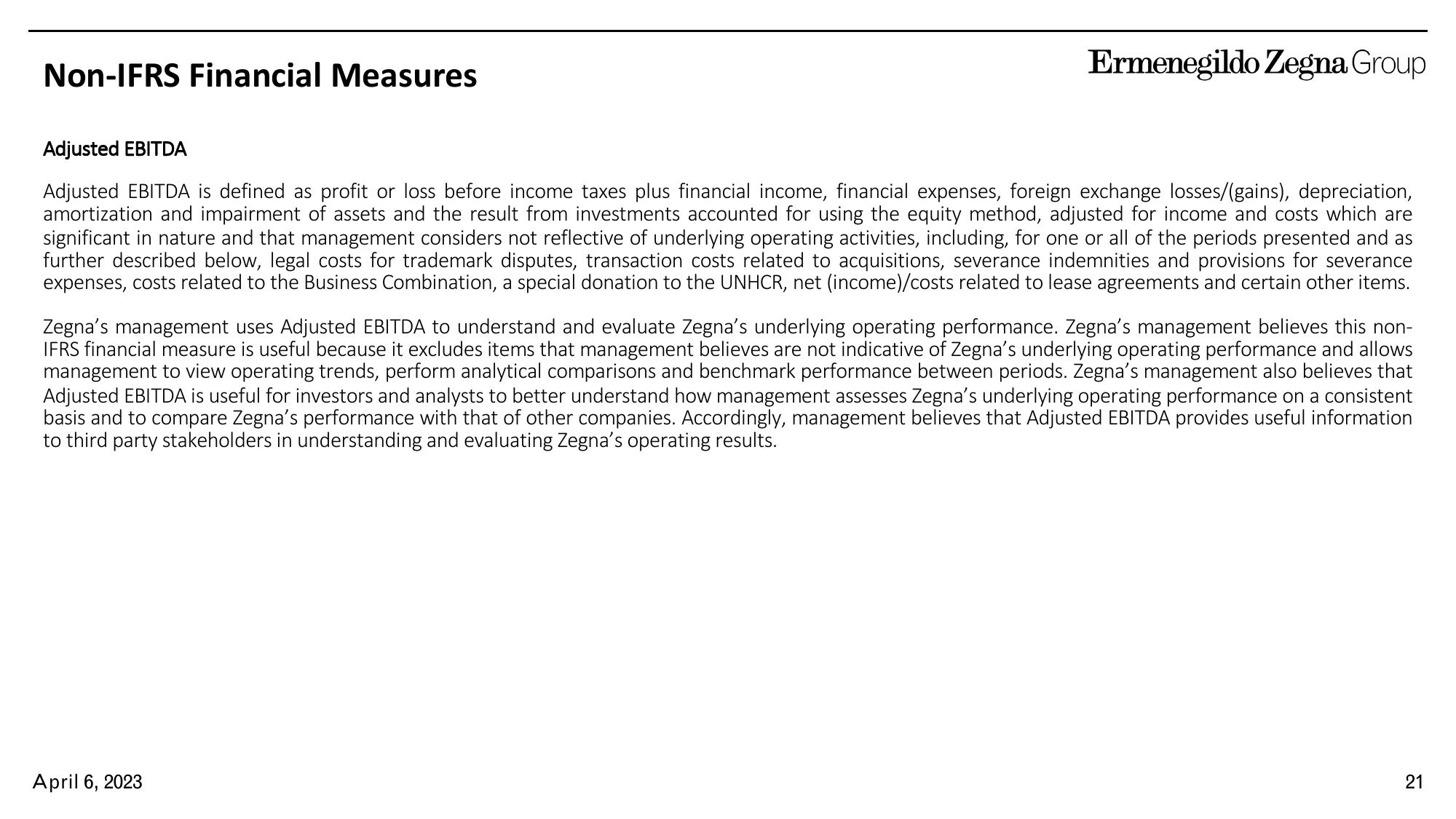Zegna Results Presentation Deck
Non-IFRS Financial Measures
Ermenegildo Zegna Group
Adjusted EBITDA
Adjusted EBITDA is defined as profit or loss before income taxes plus financial income, financial expenses, foreign exchange losses/(gains), depreciation,
amortization and impairment of assets and the result from investments accounted for using the equity method, adjusted for income and costs which are
significant in nature and that management considers not reflective of underlying operating activities, including, for one or all of the periods presented and as
further described below, legal costs for trademark disputes, transaction costs related to acquisitions, severance indemnities and provisions for severance
expenses, costs related to the Business Combination, a special donation to the UNHCR, net (income)/costs related to lease agreements and certain other items.
Zegna's management uses Adjusted EBITDA to understand and evaluate Zegna's underlying operating performance. Zegna's management believes this non-
IFRS financial measure is useful because it excludes items that management believes are not indicative of Zegna's underlying operating performance and allows
management to view operating trends, perform analytical comparisons and benchmark performance between periods. Żegna's management also believes that
Adjusted EBITDA is useful for investors and analysts to better understand how management assesses Zegna's underlying operating performance on a consistent
basis and to compare Zegna's performance with that of other companies. Accordingly, management believes that Adjusted EBITDA provides useful information
to third party stakeholders in understanding and evaluating Zegna's operating results.
April 6, 2023
21View entire presentation